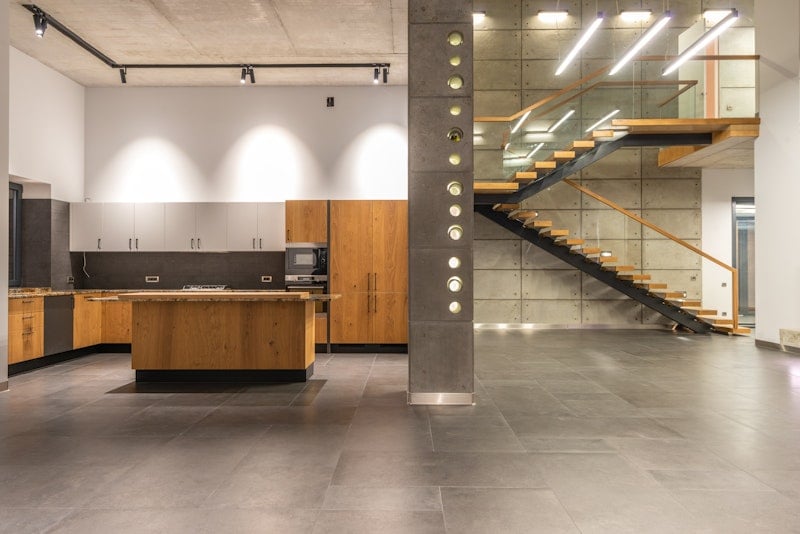Corporate housing rentals have emerged as the preferred accommodation choice for companies relocating employees, managing long-term projects, or supporting extended business travel. Unlike traditional hotels or short-term vacation rentals, fully furnished corporate apartments and homes offer the comfort of home combined with professional-grade amenities at competitive pricing.
Industry analysis from Statista indicates that the global corporate housing and extended-stay market continues to show strong growth, driven by increasing workforce mobility and flexible work arrangements.

Contents
- What Is Corporate Housing?
- Key Benefits of Corporate Housing Rentals
- Types of Corporate Accommodation Available
- Corporate Housing vs Other Options
- How to Choose the Right Corporate Housing Provider
- Corporate Housing Pricing and ROI
- Frequently Asked Questions
What Is Corporate Housing?
Corporate housing refers to fully furnished apartments, condos, or single-family homes leased on a temporary basis—typically from one month to a year—specifically for business travelers, relocated employees, or project teams. These properties come equipped with everything from high-speed internet and dedicated workspaces to housewares, utilities, and often housekeeping services.
According to research from the Corporate Housing Providers Association (CHPA), the sector has evolved into a sophisticated industry focused on delivering consistent, high-quality temporary housing solutions worldwide.
Key Benefits of Corporate Housing Rentals
Let’s explore why more companies are choosing corporate apartments over hotels for stays longer than 30 days:
- Cost Savings – Industry reports show corporate housing can reduce accommodation costs significantly compared to extended hotel stays.
- Space and Privacy – Separate bedrooms, full kitchens, and living areas provide the space families or teams need.
- Home-Like Environment – Reduces stress and improves productivity for long-term assignees.
- Consistency – Major providers maintain quality standards across locations globally.
- Flexible Lease Terms – Monthly rentals with ability to extend or shorten as project needs change.
Learn more about short-term home rentals that bridge the gap between hotels and traditional leasing.

Types of Corporate Accommodation Available
Corporate housing comes in several formats to match different needs:
- Serviced Apartments – Most common; located in city centers with hotel-style services.
- Executive Homes – Single-family houses ideal for families or senior leadership relocations.
- Luxury Corporate Suites – High-end finishes and concierge-level amenities.
- Extended-Stay Residences – Purpose-built properties designed specifically for corporate guests.
For those seeking premium options, explore our guide to luxury home rental solutions tailored for executives.
Corporate Housing vs Hotel vs Traditional Apartment
| Name | Key Features | Pros | Cons | Best For |
|---|---|---|---|---|
| Corporate Housing | Full kitchen, separate living/work areas, utilities included, housekeeping | Cost-effective for 30+ days, home comfort, space, privacy | Less daily service than hotels | Relocations, project teams, interim housing |
| Extended-Stay Hotels | Kitchenette, weekly cleaning, on-site staff | Daily housekeeping available, front desk support | Higher cost per night, limited space | Stays under 60 days, solo travelers |
| Traditional Apartment Lease | Unfurnished, 12-month minimum typically | Lowest monthly rate long-term | Requires furniture purchase, credit checks, long commitment | Permanent moves only |
| Short-Term Furnished Rental | Furnished, flexible terms, private owner | Unique properties, potentially lower cost | Inconsistent quality, limited corporate services | Budget-conscious short assignments |
Research from leading travel and relocation firms demonstrates increasing adoption of corporate housing solutions among Fortune 500 companies for employee satisfaction and cost management.
How to Choose the Right Corporate Housing Provider
When evaluating corporate housing rentals, consider these critical factors:
- Location proximity to office or project site
- Inventory quality and standardization
- Transparent all-inclusive pricing
- 24/7 guest support and emergency maintenance
- Flexible cancellation and extension policies
- Technology platform for booking and management
Many companies now partner with platforms like Furnished Finder or Zumper to source verified monthly furnished rentals quickly.
Corporate Housing Pricing and ROI Analysis
While nightly rates appear higher than unfurnished apartments, corporate housing delivers superior return on investment when factoring in:
- No furniture purchase or storage costs
- All utilities, internet, and TV included
- Housekeeping and maintenance covered
- Tax advantages for business travel expenses
- Higher employee productivity and retention
Industry analysis from relocation management companies shows that comprehensive corporate housing programs consistently deliver measurable savings and improved assignee satisfaction compared to fragmented hotel strategies.

Ready to Secure Premium Corporate Housing Rentals?
Find the best deals on fully furnished monthly rentals tailored for business needs.
Browse Corporate Housing Options Now or View Executive-Level Properties for leadership relocations.
Frequently Asked Questions About Corporate Housing Rentals
What is the minimum stay for corporate housing?
Most corporate housing providers require a 30-day minimum, though some offer flexible 14-day options for specific situations.
Are utilities and internet included in corporate housing?
Yes—reputable corporate housing always includes utilities, high-speed Wi-Fi, cable/streaming services, and often weekly housekeeping in one monthly rate.
Can I book corporate housing directly or only through my company?
Both options exist. Many providers allow direct booking while offering corporate billing, discounted rates, and dedicated account management for approved companies.